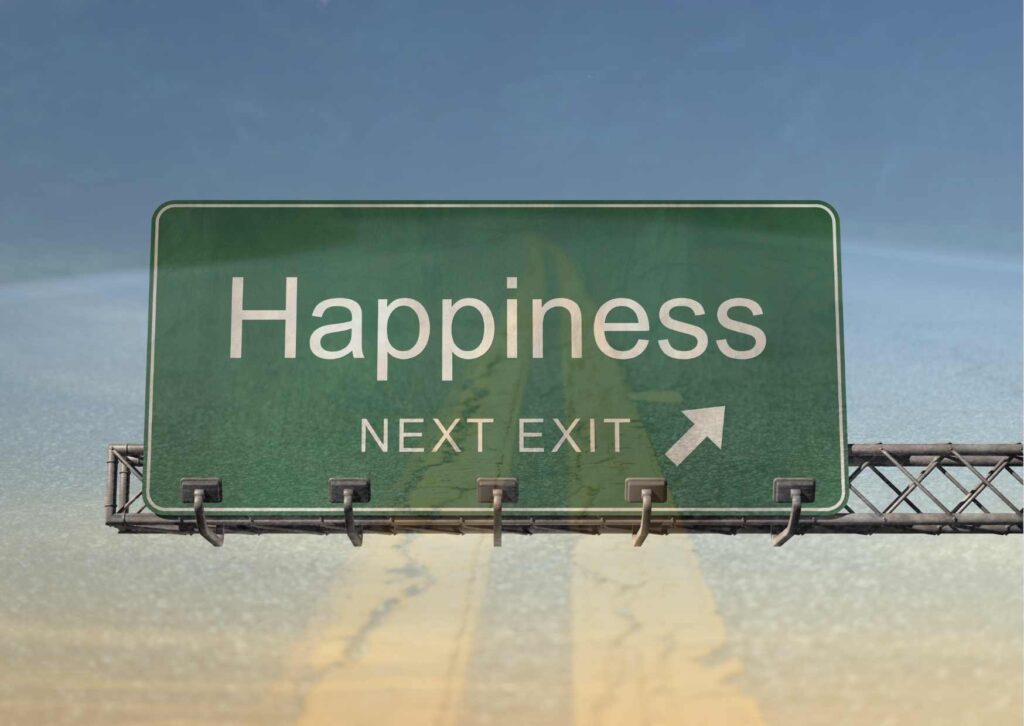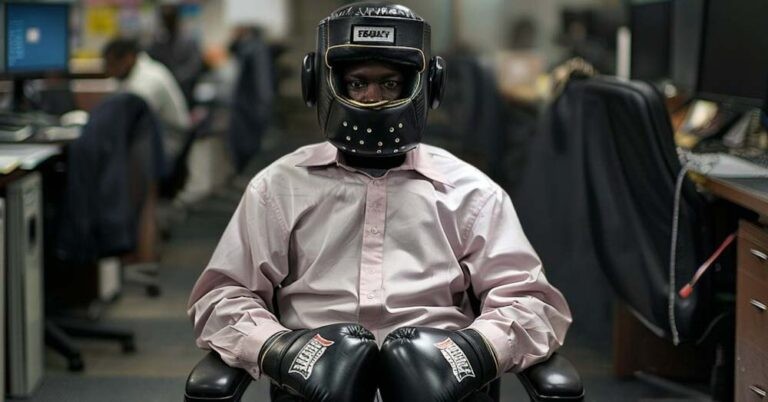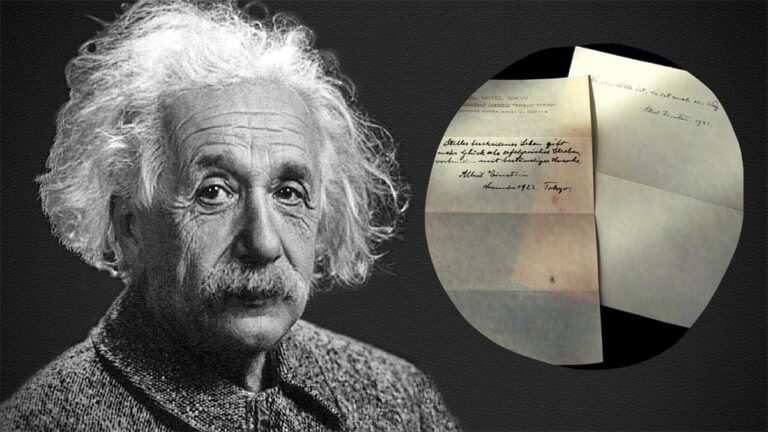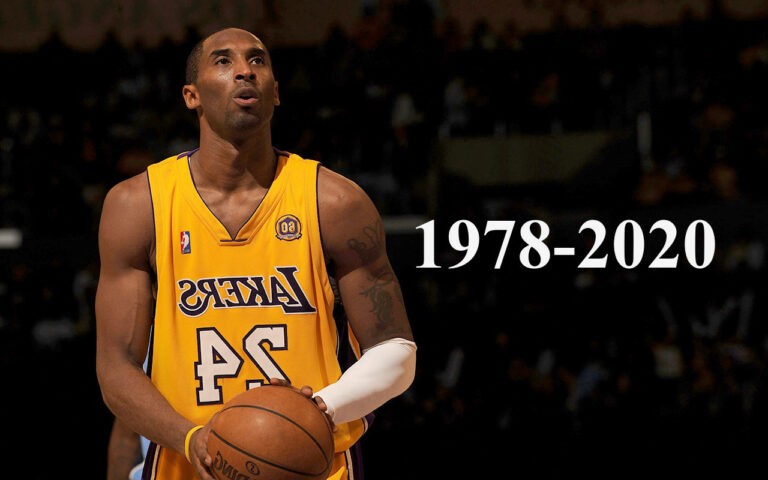
People believe that happiness is a destination because they are looking for something finite and concrete in their lives, such as money, cars, power, success, education, career, and family. They believe that once they achieve these things, all the pieces of the happiness puzzle will just fall into place and they will automatically become happy.
However, most people discover that once they achieve a goal, they are still not as happy as they originally expected to be, and they start chasing the next goal in an infinite loop, never really able to achieve and maintain the true and unconditional happiness they want. And this is why perhaps why Buddha said that:
Happiness is a journey not a destination.
Buddha
After all, achieving and holding onto happiness isn’t really possible since happiness is a rather fleeting, evasive, and ever-changing emotion, meaning that even if we can experience happiness at one point, we may later become unhappy again because:
- We may get used to what we have, known as hedonic adaptation,
- The things that make us happy may change, or
- We may want something else to be happy.
In this way, Buddha said that happiness is a journey because reaching one goal and moving on to the next can take time, life never stops, and we have lists of things that we want to achieve, so we might as well learn to enjoy the ride, which is life.
At the same time, happiness is both a journey and a destination, because our life changes, often for the better, once we achieve certain goals, meaning that our efforts can actually add up to something tangible and significant, which affects our well-being. Sure, we still need to enjoy the journey, and after we reach one destination, we need to start working on reaching the next destinations, which is why we also need to learn to enjoy the journey. Our journey matters, our goals matter, and we can improve our lives by taking the “right” actions.
Happiness is Not a Destination
There is no “and they live happily ever after” or “happy endings” according to happiness literature. Life is a continuous, ever-changing, living, breathing entity that cannot be achieved and maintained indefinitely. We constantly need to work on our well-being and maintain a this positive state through a continuous positive stream of action.
Therefore, happiness is not a destination, but rather a series of movements designed to improve our well-being. Hopefully, these movements will add up to something significant that we can call happiness, but even if they don’t, we should still be able to enjoy our life, every moment of it.
We cannot simply press a “skip” button to take us from one destination to the next, as was done in the movie Click (2006), where the protagonist essentially skipped the entire journey and went straight to the destination, but in doing so, he skipped his whole life, ending up with a pile of deathbed regrets:
Instead, the protagonist was able to find his happy ending by being allowed to go back in time and learning to enjoy the ups and downs of life as they happened to him. He savored every moment, even the bad ones, realizing that this is all we have – one life, and one continuous “happy ending” – a continuous journey we embark on.
Happiness is a Journey
Additionally, a life without problems is unrealistic, as we will always have problems, no matter who we are and what we do, and it is delusional to think otherwise. Even super rich people experience unhappiness, despite their vast fortunes and influence. So, in a way, being rich and influential may not be the best goal if what you really want is to be happy, or as the famous comedian Jim Carrey once said:
I hope everybody could get rich and famous, and do everything they ever dreamed of, so they would know that it’s not the answer.
Simply put, good and bad things will happen to everyone, with smaller good or bad things happening more often than major events. In other words, something extremely good or bad will eventually happen to you, me, and everyone else, and it is just a matter of time before it happens to us, so we might as well anticipate and prepare for it rather than blaming or praising the universe when it does happen.
I’m not saying this to scare you or make you unhappy, but rather to set realistic expectations. Happiness is a journey, not something finite and concrete. We will experience ups and downs on a continuous basis, so we should learn to roll with the punches and enjoy every moment of it.
Happiness is Both a Journey AND Destinations
Human beings are not designed to be idle and we always need to be doing something, meaning that anyone who tells you that happiness is found in relaxing, procrastinating, and being idle is only telling you half of the story.
Sure, we should continue building ourselves up by setting goals and aiming to continuously improve our situation. Still, happiness is not a destination, but a way of life that we address on a day-by-day, moment-by-moment, and goal-by-goal basis. We make the most of what we can and hopefully learn that we can be happy regardless of who we are, where we are from, and what our life circumstances are.
However, what we do matters—the destination of our goals matters. We can’t just throw up our hands and say that it doesn’t matter what we do, as our actions can lead to positive outcomes, while negative actions or inaction can lead to unhappiness.
In this way, when Buddha said that “happiness is a journey, not a destination,” he meant to say that we shouldn’t obsess about the destination and forget to live our lives in between achieving these goals. However, he didn’t say that we should forget about trying to improve our lives, fix our problems, or try to build something tangible that will positively affect our well-being, as this is exactly how we become and maintain our happiness.
So even if things get bumpy, remember that this is also part of the process. We need to learn to enjoy every moment of it never stopping to try to build something new and bigger.
This is essentially what we teach here at Optimal Happiness: helping people navigate through the rough patches and teaching them them the fastest and surest way to become happy today and forever. So, if you’ve read this far, know that you can book a free 30-minute call with one of our experts who can assist you in becoming the best and happiest version of yourself, helping you shape your “happily ever after” journey and destination.
















29 thoughts on “Why Happiness is a Journey AND a Destination”
“However, he didn’t say that we should forget about trying to improve our lives, fix our problems, or try to build something tangible that will positively affect our well-being…” So gratifying to read that line! This gets lost when people teach/talk about the Buddha. He would not have achieved enlightenment had he not SET OUT to find the way to end suffering. According to Buddhist canon it was a seven year journey…with a destination…that led to the next journey!
I agree, Buddha himself tried different things, such as leaving the palace and royal life, practicing asceticism, and seeking guidance from various gurus as he journeyed towards enlightenment. He progressed from one stepping stone to the next, from one goal to the next, while still finding joy in life. However, even for Buddha, it took time to attain enlightenment. This means that he too had to face the struggles of life and view it all as a continuous journey with multiple intermediary destinations.
Great reflection and important truth. Searching for our “happy ending” and stressing about busy extras explains so much of our suffering, and our inability to see the beauty all around us. We are distracted, lonely and blinded, but I struggle with mindfulness big time.
Thank you for your kind words, Becca. Yes, the concept of a “happy ending” and “living happily ever after” also fascinates me. It is introduced to us from a young age, subconsciously influencing the lives of so many people, but I question whether it is correct. I enjoy being mindful, too, and I also struggle with it at times (I guess just like everyone else), always pledging to do better. I wish you the best on this journey called life. I am happy that our lives have interconnected, even in this small gesture of your reply to my blog post, and I wish you all the best moving forward!
Great post!
Thank you for your support Lisa <3
Love how this post made me think of a podcast I’ve listened to now a few times. In it the therapist (author and life/performance coach: Steve Peters “The Chimp Paradox”) is talking about the theory of default settings in our brains. How dissatisfaction and gauging fairness are our “chimp brain” defaults, like an infant knowing heights are scary. How the “computer brain” is our training kicking in from practice. Been more goal oriented these days than ever before, and one of my favorite things I’ve learned through studying dream manifestation and satisfaction, is the idea that intrinsic goals that can never be truly fulfilled; are some of the most rewarding things we can pursue. Like a friendship, or developing the art of writing, the end will never be attainable. I like to think that happiness is a pursuit, and the hunt for the scraps of joy I can grasp from day to day; are what I live for. This story about a cup of coffee gave me a whole sense of happiness like your post did. Love it too, so thank you: https://youtu.be/qxrNCRhxgho?si=qETw7oaMPc-58pxG
Thank you, Benjamin, for your support, for following my blog, and for sharing your inspirational story. From my perspective, I find inspiration to be incredibly important and I actively seek it out wherever I go. It helps me to stay motivated and push forward each day, even when things get tough. However, beyond just inspiration, I am also searching for a sense of order in the chaos. Happiness is often seen as a messy and complicated topic, so I work to organize and break down the concept in a way that makes sense for myself and my readers. It is definitely a journey, much like life itself, and since happiness is such a crucial driving factor for humanity and so many people struggle with their happiness, I try to assist in any way I can. I truly believe that these efforts will ultimately contribute to something bigger and better. This is my way of making a positive impact in the world, and I am grateful that you have noticed and chosen to be a part of this journey.
Gladly Roman! I love that you can take what I feel and think about some of my purpose and life philosophy, and sum it up into clear concise articulations. Glad you found inspiration in my story too!! From an interview with a scientist studying habit formation and a podcaster (Chris Williamson/Modern Wisdom), where they were discussing their definitions of wisdom, I garnered; “when your intention, action, and results all match”. I struggle to be cohesive with my expressions, my mind dances all over flitting down to alight and jump away each moment, so I find diagrams to be very useful. I embrace the serenity and ambiguity of an oblique chart, like drawing a metaphor; free. These pictures help me weather the storm of ideas and influences that change and shift each moment. My only constructive criticism of the writing in your reply (ironically as I think your writing is more technically correct than mine)is to change, “will ultimately”to “contagiously” or “continuously”!! ❤️
Thanks for inspiring me to add the words “happiness”, “joys”, and “immaterial” to my latest drawing of the mountains and pits of life! We travel level, climbing and falling, the clouds dump on us with frozen rain, but then the sun shines through; and those same gray shards of icy flying meanness, can cast rainbows into our eyes: forcing long held back salty tears of overwhelmingly stacked up joy out. The satisfying sensation of feeling good all over, and showing it by sobbing fiercely….This organization is not to be underestimated in its importance towards the path of spreading hope for a better humanity. Playing for change is rad!! https://youtu.be/3hGSqqhhokE?si=o8nhew3ENv44QgTL
Of course, as I always say, happiness is the #1 goal of life, the main reason behind everything that we do. So yes, sometimes there are ups and downs in life, but ultimately, happiness is possible regardless of who we are, what we do, and where we are from. Thank you for sharing this song and keep on dancing!
Hehe, I hear you, and I’m not above the law of attraction, so I always act in a way that brings the most attraction into my life (referring to: will ultimately”to “contagiously” or “continuously”!! ❤️). From what you wrote, I gather that being present in the moment may be proving difficult because you “struggle to be cohesive with my expressions, my mind dances all over flitting down to alight and jump away each moment.” In this case, I recommend an easy exercise that may make everything clearer, which is to think 100% about what you are doing. So, if you are at work, think about work. At the grocery store, think about your groceries. And when talking to a friend, think just about your friend. However, when you are at work and thinking about your friend or any other permutation, this is when you get into trouble.
Excellent advice!! It fits nicely into my new phone habit…of having a separate business phone to physically represent my work day/personal life delineations of time and mental space. Helpful clarity again, thank you! I know what I have to contribute as my latest progress in practices towards personal growth in my group life coach session next week!! Your latest reply will be fun to read to the group. Additionally, for the second time in my life, I’m going to set an alarm to go off; to remind me of my appointment to worry too…although like last time; I’ll cancel it at the last minute. One task at a time. ❤️
I haven’t written much about happiness at work and more about personal happiness because I think we should address these topics separately. I will get there I promise, but for now it is true that we should think of these parts of life separately, even thought they are connected. What’s your group life coaching call next week is about? You are actually thinking of cancelling it? :)
I’m excited to be further challenged by the premise that addressing the subject of happiness separately at work is the ideal. While I recognize that my work is particularly interwoven with my personal life in ways it isn’t for others, and that skews my perceptions towards them being the same thing; I love to get paid to build boundaries: so looking forward to hearing your insights on the topic. I have found the words “should” and “sorry” to be synonymous with miserable thought. I love to encourage people to give themselves a slice of joy by choosing to use “could” and “thanks” as substitutes as much as possible. Those two concepts are in my Human Resource Department guidelines for operations: “timber pitch yaw and stroke”.
As far as the counseling appointment, I am planning on going. The thing I’m cancelling at the last minute will be the “appointment to worry”, as this is a strategy I learned in another counseling appointment years ago, and I love to share it. There are always opportunities to postpone worry, and setting aside time specifically to worry, can be a healthy way to get it done and move on, or cancel it if you’ve worried enough. The group life coaching is guided by the (new to me) theory of “Germanic Healing Knowledge”. It’s less about having an overarching issue that each of us share in common, and more about sharing our struggles and listening to each other’s. The supporting feedback from the counselor, and others in the group relating their experience to ours is cool. Only been once so far. Love it. Looking forward to hearing more of your thoughts about separating work and personal life in the pursuit of happiness….although I feel it would be unethical if I didn’t admit at this point, that I believe happiness is a pursuit, not something possible to maintain perpetually for a healthy individual, and contentment is my goal. I find the highs and lows of happiness and misery to be unsustainable and dangerous, preferring to grasp both fiercely when they occur, but have accepted that neither is safe from my principles, the world, and passing time. One example of this is the new research into accomplishment, that shows how our brain has an area that grows with doing things you find intolerable; like going to the gym when you don’t want to, or asking a girl on a date. Gallows humor would be another example of a way to find joy when happiness is far away. Homicide detectives, Nurses, Doctors, Fire Fighters, and people like me who mitigate mold, rot, rodent infestations, broken foundations etc; utilize it because their life is dedicated to the gnarly aspects of defending survival. I find contentment in dealing with gross, a sense of well being that my life has a worthy purpose, and the small joy of laughing it away helps deal with my perspective; that letting go of happiness for a moment to support the pursuit of it for others: is the sacrifice that decides my value as a worthy citizen. My pursuit of happiness is intrinsically interwoven with the idea, that after 9 days of no running water and electricity, some people will be suffering greatly, some will be taking advantage of them in parasitical ways, and I will be useful. I love how storms and broken things reveal humanity in its myriad of wonderful, but draw the line at being happy at other’s misfortune for giving me an opportunity to shine. Weird how one of the things that is most hilarious, is other peoples misery. How comedians can be some of the most sad people. The bigger the grin, I start wondering what grief is hidden. I hope this gave you a sense of solidarity towards what I see as our shared path. “I would have made this reply shorter, but I didn’t have the time”. I love your work here Roman.
You bring up a lot of interesting points, Benjamin, and challenge me to unpack them all. I believe happiness is a complex topic and many concepts are intertwined with others, so it is often difficult to address all of them simultaneously. This is why I would need another blog or even an actual sit-down in a cafe for two days just to discuss everything and anything that might come up afterwards, haha. That being said, I believe that people have a choice in what they do, so no one is really forced to become a homicide detective, nurse, doctor, or firefighter. In this way, we choose our fate and our karma. Everything that follows, whether it be happiness or unhappiness, comes directly as a consequence of our actions – or in other words, our actions matter. Then people come to me and say that they are unhappy, when in reality it is their life choices that are making them unhappy. Fair enough, sometimes it is hard to judge whether a certain action will lead to happiness or unhappiness, and we certainly need detectives, nurses, doctors, and firefighters. But does it have to be you doing these jobs? (And by “you,” I mean people in general, not specifically you Benjamin). I mean, theoretically speaking, we can be happy in any job and almost any life circumstances. We can even be happy if we make every possible action that should lead to unhappiness. But my question is, why do this if we have a choice? Why shoot ourselves in the foot? We only live once, and pursuing our own happiness isn’t selfish – there is enough happiness to go around, and our happiness doesn’t have to come at the expense of anyone else’s happiness. So what if someone else feels bad when we are happy because of our happiness? We can’t help these people, at least not in a way that would benefit both parties, because they are just dragging us down and not contributing anything in return.
If you don’t mind, I will leave the topic of work-life balance for now as I don’t have anything specific to say about that, except that it is indeed 1/3 of our life and is connected and intertwined with everything else. This is why what we do at work and our happiness at work also matter.
I would love the cafe sit down for sure, and I love that you are so engaging, knowledgeable, and thoughtful in your efforts here on your comment section. I agree that pursuing other people’s interests, at the expense of your own, can be is a way to avoid making better choices and decisions that could lead you towards an improved quality of life….that being said, I find slices of happiness in helping others, and one of the core aspects of the human experience is relationships with other people. The question to me is how to balance my sense of generosity with self respect. Does my pursuit of happiness include healthy loving relationship(balanced reciprocal sacrifice)? If so, where is the line between pursuing my own happiness, and sacrificing mine for the people who matter most to me? I’m wired well for doing dirty tasks that others are repulsed by, and believe it’s one of the best ways a leader can honor their fellow leaders. My takeaway from this thread is, “leading a life guided by your pursuit of personal happiness, can include repulsive duties for others, without it ruining yours; if you’re consciously deciding to do so….carefully.” This has been a huge struggle for me in my life Roman, and I don’t believe we’re in disagreement. The spectrum of choices that can lead to happiness for an individual is unique to their capabilities in my opinion. I like moving pianos for others for instance, as the danger is challenging, I end up sweating, and ultimately more music is brought into the world. There’s always a free piano online when I look, and it’s a satisfying way for me to embrace one of my life’s purposes. Reciprocity is a gauge that helps me to keep from either being taken advantage of by selfish people, or offering too much of myself and falling into codependency. Interdependency is a healthier way, and growing into the practices of maintaining it is difficult for me, but worth it. As far as how others feel, yeah, that’s part of the reciprocal process in a healthy relationship, I’ve found that if I’m not selfish enough, it can lead to their resentment of me. Balancing on the beam of happiness will make some people envious and spiteful as you said, but “the only thing we can control is the view we take from our experiences, not the events themselves”. Shine on!
Also, regarding the statement that “happiness is a pursuit, not something possible to maintain perpetually,” I addressed this topic in a blog post titled “Happiness is NOT Elusive: Here is Why” (https://optimalhappiness.com/happiness-is-elusive). In summary, the concept of happiness is complex and often misunderstood. Many individuals, despite their best efforts, unknowingly engage in actions that contribute to their unhappiness. Later, they conclude that happiness is impossible to achieve, as they have tried and failed. However, I argue that happiness is indeed attainable if we make the right choices and avoid the wrong ones. While I cannot outline every step here, based on my personal experience, I have witnessed remarkable transformations and met individuals who were genuinely happy despite their seemingly unfavorable circumstances.
I loved that article. To me a fundamental aspect of maintaining happiness, is the development of a healthy relationship with grief, rejection, and depression. Learning to embrace the predictable experiences that can lead to perpetual melancholy, so that the process is efficient, instead of brushed under the rug of a happy face; and getting stuck. Tears are healthy and function not just to flush your eyes of dust, but to cleanse your soul of the grime life throws into your sight. You’re a flashlight in the night bro: “genuinely happy despite their seemingly unfavorable circumstances.”
https://www.healthline.com/health/benefits-of-crying
Some times its the journey that makes the destination worth while!
I couldn’t agree more with you, Val Whitewolf Heike!
Very cool!
Pingback: Difference of Opinion? – TATWIP
I am in pain, but I don’t think a lack of happiness is my problem. I have learned to be happy with little or much. Simple things and experiences are what I value. My problem seems to be past things that haunt me. It’s hard to feel joy when you are in both physical and emotional pain. Thoughts?
@lostandinvisible To answer your question, the first thing I’d like to revisit is the definition of happiness, which consists of all positive emotions (e.g., joy, excitement, and ecstasy), while all negative emotions (e.g., grief, boredom, and pain) are generally referred to as unhappiness. This distinction is important because you mentioned that you don’t want to suffer, so what should you aim for instead? In my opinion, you should aim for happiness which is the opposite side. You can create a little bubble of “enoughness” and try to stay there indefinitely, but in this state, are you truly living your life or just existing? Additionally, you are at risk of anything happening that could break your bubble without any safety margin. Furthermore, your issues with the past, as well as both physical and emotional pain, cannot be addressed in a general manner. We would need to look at these specific situations. However, I want to reassure you that you can work through all the feelings that are making you feel less than perfect, and you can create a life of happiness. I would be honored to accompany you on this journey to discover your best self and help it shine through.
In descending order of exponential potential for my pursuit of happiness, from a podcast episode I keep listening to: “moral deeds for others, moral thoughts for others, self care”. Roman does a good job here of doing the first two in my opinion. “When you give love you get love”. Skip to 1:12:14 for direct reference to the quotes above….or listen to the whole thing, it’s fantastic: https://youtu.be/qRY-foz-ZAw?si=5SttArRYdGXtfXkQ
He said that in the USA, happiness has been on the decline since the 1990s. This is interesting but still consistent with what we already know about the mental health epidemic that is happening worldwide. Still, the question remains: What can we do about it? We can’t just say that “50% of all happiness is genetic” and leave it at that. However, this isn’t practical happiness advice. One thing is certain, as you correctly pointed out, @Benjamin, morals that prioritize making life better for others as well as oneself are what make people happier. Therefore, we can cultivate more of these.
Precisely yes Roman. Does genetic predisposition wholly determine emotional outcomes? With attitude, perspective, and experience? In a few rare outliers on the genetic spectrum probably yes, but not as a general rule for the vast majority of humans, I don’t believe that. My greatest satisfactions come from overcoming challenges, or if they’re not possible to overcome I can find joy by helping someone who is worse off than me. From the same podcast: “Lonely? Volunteer”.
I do believe that many people overthink questions like genetics and their effects on our overall happiness, as it is something that we can’t really do anything about. I mean, it is still nice to know, but I would rather be practical. So regardless of people’s ethnicities, age, gender, genetic makeup, or anything else for that matter, how can we make people happier? And what is the fastest and best way to achieve this outcome? I mean, there are countless roads to Rome, but certainly some roads will take us there faster than others. Additionally, many people keep doing things in their lives that are metaphorically shooting themselves in the foot. Then they complain that they are unhappy, stating that life is full of problems, challenges, and is just unfair. I mean, sure, most people don’t know what wrong things they are doing, so it’s not fair to judge a blind person for not knowing where to walk. However, this is where education comes in, and certainly hope. After all, in terms of happiness, people often struggle with this topic, but realistically speaking, there is a way, a solution for virtually anyone to become their best selves. And this is personally the message I’m trying to address here. We don’t have to suffer, and suffering is optional because we can do something about it!